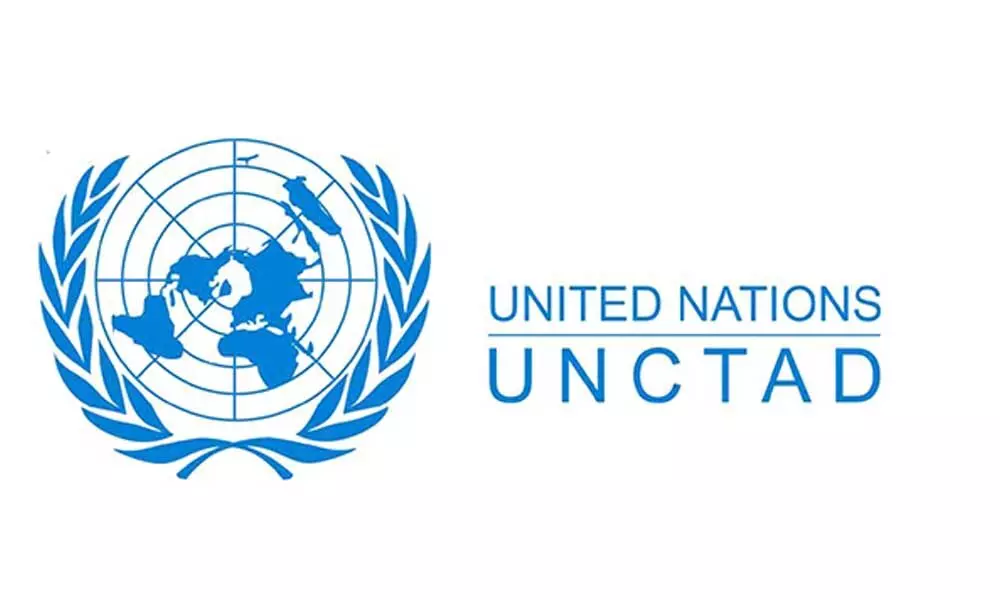Global foreign direct investment fell by 42% in 2020; FDI in India rose by 13% in 2020: UNCTAD

Global foreign direct investment fell by 42% in 2020; FDI in India rose by 13% in 2020: UNCTAD
United Nations Conference on Trade and Development (UNCTAD) in its reports titled, ‘Investment Trends Monitor’ said, the Foreign Direct Investment into India rose by 13 per cent in 2020
United Nations Conference on Trade and Development (UNCTAD) in its reports titled, 'Investment Trends Monitor' said, the Foreign Direct Investment into India rose by 13 per cent in 2020, boosted by interest in the digital sector, and while fund flows "declined most strongly" in major economies such as the UK, the US and Russia due to the COVID-19 pandemic, India and China bucked the trend.
UNCTAD in the report published on January 24, 2021, said uncertainty about the COVID-19 pandemic's evolution and the global investment policy environment will continue to affect FDI flows in 2021. For developing countries, the prospects for 2021 are a major concern. It added global foreign direct investment (FDI) collapsed in 2020, falling 42 per cent from $1.5 trillion in 2019 to an estimated $859 billion.
It further said, such a low level was last seen in the 1990s and is more than 30 per cent below the investment trough that followed the 2008-2009 global financial crisis. Despite projections for the global economy to recover in 2021 – albeit hesitant and uneven – UNCTAD expects FDI flows to remain weak due to uncertainty over the evolution of the COVID-19 pandemic.
The organization had projected a 5-10 per cent FDI slide in 2021 in last year's World Investment Report.
"The effects of the pandemic on investment will linger," said James Zhan, director of UNCTAD's investment division. "Investors are likely to remain cautious in committing capital to new overseas productive assets."
Talking about the developed countries UNCTAD Investment Trends Monitor said that these countries were hardest hit as the decline in FDI was concentrated in developed countries, where flows plummeted by 69 per cent to an estimated $229 billion.
Report on North America
Flows to North America declined by 46 per cent to $166 billion, with cross-border mergers and acquisitions (M&As) dropping by 43 per cent. Announced Greenfield investment projects also fell by 29 per cent and project finance deals tumbled by 2 per cent.
Report on the United States
The United States recorded a 49 per cent drop in FDI, falling to an estimated $134 billion. The decline took place in wholesale trade, financial services and manufacturing. Cross-border M&A sales of US assets to foreign investors fell by 41 per cent, mostly in the primary sector.
Report on Europe
On the other side of the Atlantic Ocean, investment to Europe dried up. Flows fell by two-thirds to -$4 billion. In the United Kingdom, FDI fell to zero, and declines were recorded in other major recipients. But Europe's overall FDI performance masks a few regional bright spots. Sweden, for example, saw flows double from $12 billion to $29 billion. FDI to Spain also rose 52 per cent, thanks to several acquisitions, such as private equities from the United States Cinven, KKR and Providence acquiring 86 per cent of Masmovil.
Report on other developed countries
Among other developed economies, flows to Australia fell 46 per cent to $22 billion but increased for Israel (from $18 billion to $26 billion) and Japan (from $15 billion to $17 billion).
UNCTAD Investment Trends Monitor analysis on developing economies
Talking about the Developing economies UNCTAD Investment Trends Monitor said developing economies account for record share of FDI. Although FDI flows to developing economies decreased by 12 per cent to an estimated $616 billion, they accounted for 72 per cent of global FDI – the highest share on record.
The fall was highly uneven across developing regions: -37 per cent in Latin America and the Caribbean, -18 per cent in Africa and -4 per cent in developing countries in Asia. FDI to transition economies declined by 77 per cent to $13 billion.
While developing countries in Asia weathered the storm well as a group, attracting an estimated $476 billion in FDI in 2020, flows to members of the Association of Southeast Asian Nations (ASEAN) contracted by 31 per cent to $107 billion, due to a decline in investment to the largest recipients in the sub-region.
In terms of individual nations, China was the world's largest FDI recipient, with flows to the Asian giant rising by 4 per cent to $163 billion. High-tech industries saw an increase of 11 per cent in 2020, and cross-border M&As rose by 54 per cent, mostly in ICT and pharmaceutical industries.
"A return to positive GDP growth (+2.3 per cent) and the government's targeted investment facilitation programme helped stabilize investment after the early lockdown," the report says.
India, another major emerging economy, also recorded positive growth (13 per cent), boosted by investments in the digital sector.

















